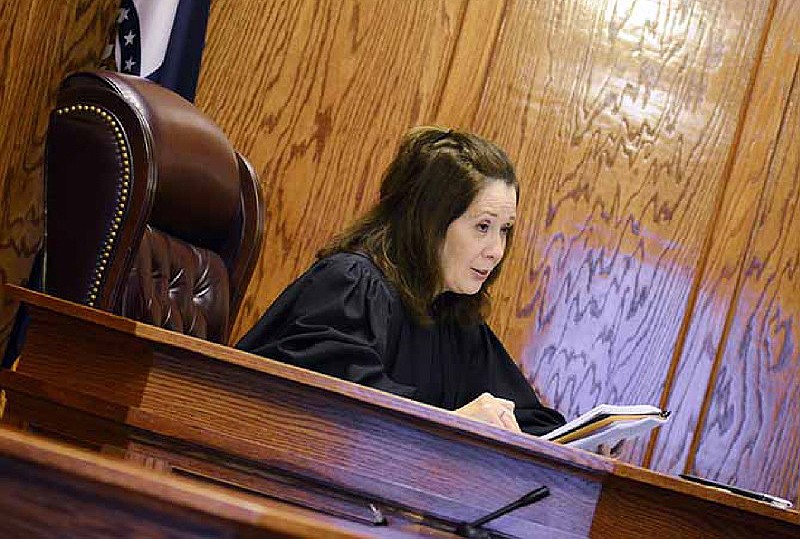Missouri's Department of Health and Senior Services "purposefully" violated the state's Open Records (or "Sunshine") law, Cole County Presiding Circuit Judge Patricia Joyce ruled last month.
She fined the department $500 for the violation but also ordered them to pay $10,754.97 to cover the ACLU's costs and attorneys' fees for bringing the lawsuit.
And, in an eight-page ruling, Joyce ordered the department to give the ACLU "all responsive records, if those records have not already been produced."
The case began Sept. 17, 2017, when St. Louis County police confiscated some liquid from some people attending a protest - then sent the "unknown chemicals" in a bottle labeled "apple cider vinegar" to the state Health Lab for testing, according to an ACLU news release.
In November 2017, the ACLU reported, St. Louis County police tweeted: "After a false-positive test in the field, lab results indicate, it's most likely apple cider vinegar."
The organization acknowledged in its news release: "It is not uncommon to see apple cider vinegar at a protest, where it is used to lessen the pain of tear gas."
But, when the ACLU asked the department for "copies of lab test results relating to 'any liquid alleged to have been thrown at police during protests,'" the state refused to release the records.
The ACLU and the American Civil Liberties Union of Missouri Foundation sued the department Jan. 23, 2018.
Joyce's ruling noted the department refused to release the records "because of an 'ongoing criminal investigation.'"
State law allows officials to withhold information about ongoing law enforcement investigations until those investigations are finished.
However, the judge ruled, the department and its divisions, including the Health Lab, are not law enforcement agencies under the law.
If nothing else, Joyce wrote, "Neither the DHSS nor the Missouri Public Health Laboratory possesses the authority, duty, or power to arrest. Defendant itself is not a law enforcement agency and therefore cannot rely on Sunshine Law exceptions that only apply to such agencies. Moreover, even if Defendant were a law enforcement agency, the records requested by Plaintiffs are nonetheless open because any investigation was inactive."
Joyce ruled that previous court rulings should have made it clear to Health Department officials that the department was not a law enforcement agency, "yet (the department) made a conscious decision not to comply with the law's requirements with full awareness of the consequences."
So, the judge ruled, the department's violations of the law were both "knowing" and "purposeful," standards which allowed her to order the department to pay the fine and the ACLU's court costs.
However, Joyce wrote: "The third factor weighs in favor of a smaller civil penalty because this Court is aware of no record of prior Sunshine Law violations by" the department - so she set the fine at $500.
In the news release, Tony Rothert, the ACLU of Missouri's legal director, said: "The Sunshine Law exists, in part, to maintain trust between the government and the people it serves. Missouri must stop this secrecy when it comes to law enforcement-related activities."
Jeffrey Mittman, the ACLU's executive director, added: "We are pleased to see government accountability and transparency win. We hope this ruling makes state agencies think twice about deliberately denying the public its right to know."

